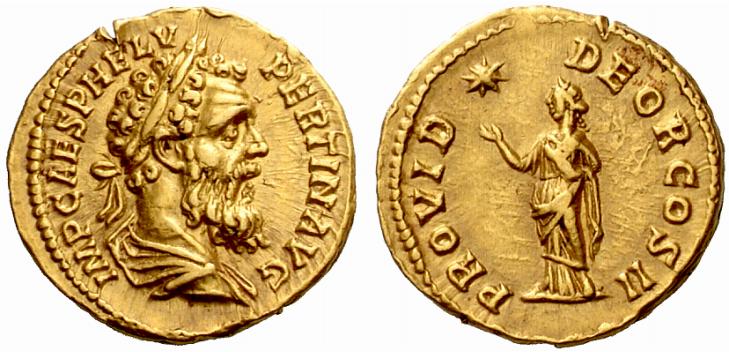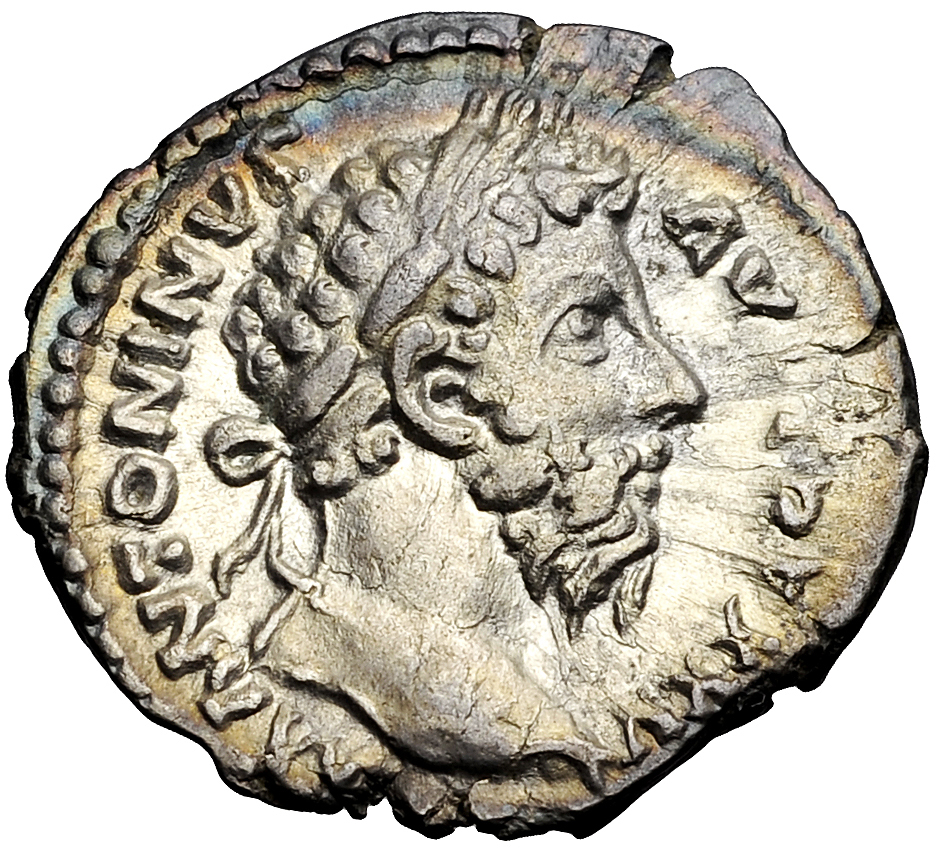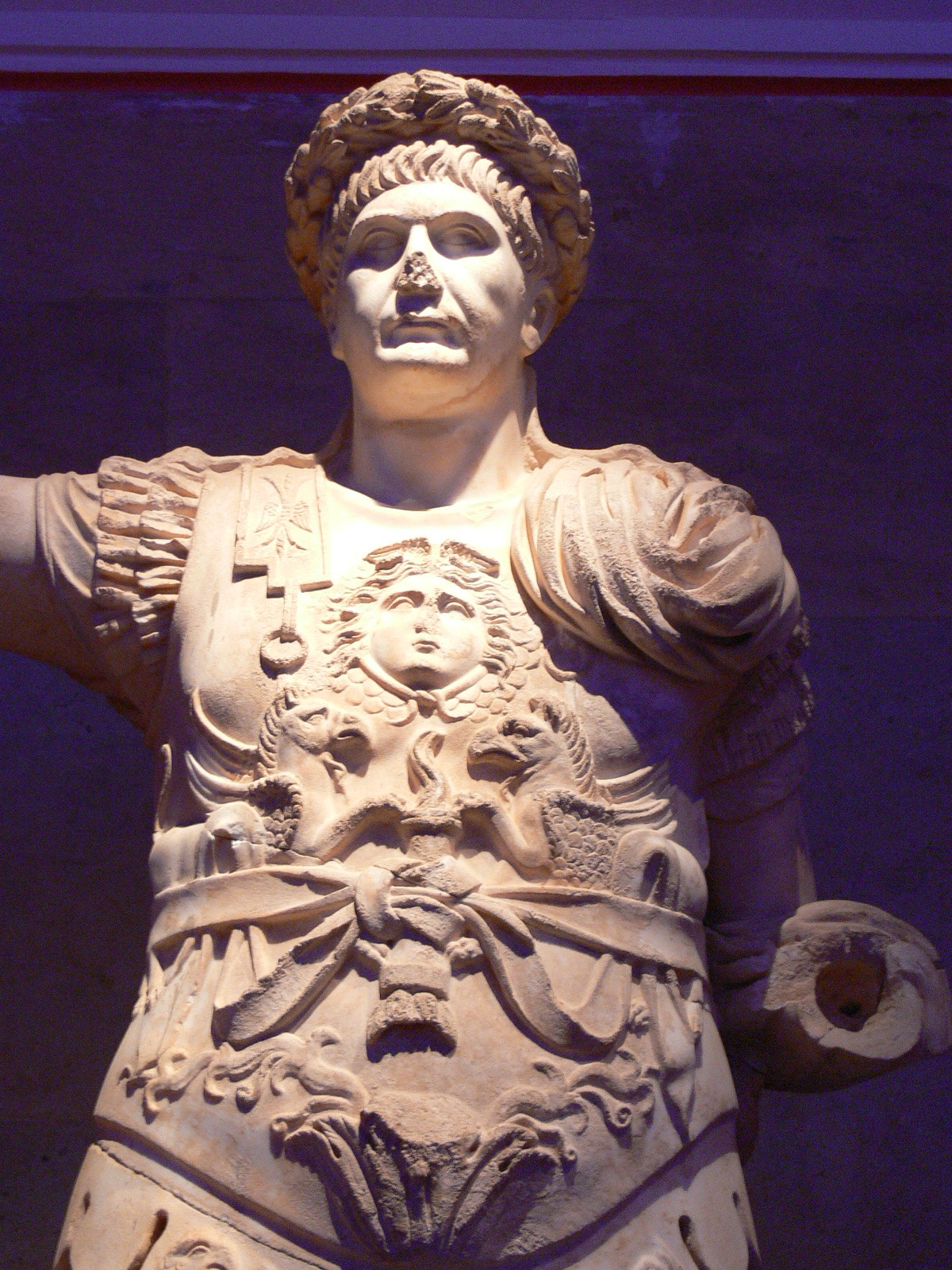|
Providentia
In ancient Roman religion, Providentia is a divine personification of the ability to foresee and make provision. She was among the embodiments of virtues that were part of the Imperial cult of ancient Rome. Providentia thus figures in art, cult, and literature, but has little or no mythology as such. ''Providentia'' was an important moral and philosophical abstraction in Roman discourse. Cicero says it is one of the three main components of ''prudentia'', "the knowledge of things that are good or bad or neither," along with ''memoria'', "memory," and ''intellegentia'', "understanding." The Latin word is the origin of the Christian concept of divine providence. Imperial cult Upon the death of Augustus, the emperor Tiberius established an altar to Providentia Augusta in recognition of "the godhead manifested in his father's provisions for the Roman state." The cult title Augusta was attached also to such goddesses as Pax, Justitia, and Concordia during the Imperial era. Traditiona ... [...More Info...] [...Related Items...] OR: [Wikipedia] [Google] [Baidu] |
Pertinax Providentia Aureus
Publius Helvius Pertinax (; 1 August 126 – 28 March 193) was Roman emperor for the first three months of 193. He succeeded Commodus to become the first emperor during the tumultuous Year of the Five Emperors. Born the son of a freed slave, Pertinax became an officer in the army. He fought in the Roman–Parthian War of 161–166, where his success led him to be promoted to higher positions in both the military and political spheres. He achieved the rank of Roman governor, provincial governor and urban prefect. He was a member of the Roman Senate, serving at the same time as the historian Cassius Dio. Following the death of Commodus, Pertinax was proclaimed emperor. He attempted to institute several reform measures, although the short duration of his reign as emperor prevented the success of those attempts. One of those reforms, the restoration of discipline among the Praetorian Guard, led to conflict that eventually culminated in Pertinax's assassination by the Guard. Perti ... [...More Info...] [...Related Items...] OR: [Wikipedia] [Google] [Baidu] |
Concordia (mythology)
In ancient Roman religion, Concordia (means "concord" or "harmony" in Latin) is the goddess who embodies agreement in marriage and society. Her Greek equivalent is usually regarded as Harmonia, with musical harmony a metaphor for an ideal of social concord or '' entente'' in the political discourse of the Republican era. She was thus often associated with Pax ("Peace") in representing a stable society. As such, she is more closely related to the Greek concept of ''homonoia'' ( likemindedness), which was also represented by a goddess. Concordia Augusta was cultivated in the context of Imperial cult. Dedicatory inscriptions to her, on behalf of emperors and members of the imperial family, were common. In art and numismatics In art, Concordia was depicted sitting, wearing a long cloak and holding onto a patera (sacrificial bowl), a cornucopia (symbol of prosperity), or a caduceus (symbol of peace). She was often shown in between two other figures, such as standing between two m ... [...More Info...] [...Related Items...] OR: [Wikipedia] [Google] [Baidu] |
Antoninus Pius
Antoninus Pius (Latin: ''Titus Aelius Hadrianus Antoninus Pius''; 19 September 86 – 7 March 161) was Roman emperor from 138 to 161. He was the fourth of the Five Good Emperors from the Nerva–Antonine dynasty. Born into a senatorial family, Antoninus held various offices during the reign of Emperor Hadrian. He married Hadrian's niece Faustina, and Hadrian adopted him as his son and successor shortly before his death. Antoninus acquired the cognomen Pius after his accession to the throne, either because he compelled the Senate to deify his adoptive father, or because he had saved senators sentenced to death by Hadrian in his later years. His reign is notable for the peaceful state of the Empire, with no major revolts or military incursions during this time. A successful military campaign in southern Scotland early in his reign resulted in the construction of the Antonine Wall. Antoninus was an effective administrator, leaving his successors a large surplus in the t ... [...More Info...] [...Related Items...] OR: [Wikipedia] [Google] [Baidu] |
Hadrian
Hadrian (; la, Caesar Trâiānus Hadriānus ; 24 January 76 – 10 July 138) was Roman emperor from 117 to 138. He was born in Italica (close to modern Santiponce in Spain), a Roman ''municipium'' founded by Italic settlers in Hispania Baetica and he came from a branch of the gens Aelia that originated in the Picenean town of Hadria, the ''Aeli Hadriani''. His father was of senatorial rank and was a first cousin of Emperor Trajan. Hadrian married Trajan's grand-niece Vibia Sabina early in his career before Trajan became emperor and possibly at the behest of Trajan's wife Pompeia Plotina. Plotina and Trajan's close friend and adviser Lucius Licinius Sura were well disposed towards Hadrian. When Trajan died, his widow claimed that he had nominated Hadrian as emperor immediately before his death. Rome's military and Senate approved Hadrian's succession, but four leading senators were unlawfully put to death soon after. They had opposed Hadrian or seemed to threaten his s ... [...More Info...] [...Related Items...] OR: [Wikipedia] [Google] [Baidu] |
Trajan
Trajan ( ; la, Caesar Nerva Traianus; 18 September 539/11 August 117) was Roman emperor from 98 to 117. Officially declared ''optimus princeps'' ("best ruler") by the senate, Trajan is remembered as a successful soldier-emperor who presided over one of the greatest military expansions in Roman history and led the empire to attain its greatest territorial extent by the time of his death. He is also known for his philanthropic rule, overseeing extensive public building programs and implementing social welfare policies, which earned him his enduring reputation as the second of the Five Good Emperors who presided over an era of peace within the Empire and prosperity in the Mediterranean world. Trajan was born in Italica, close to modern Seville in present-day Spain, a small Roman ''municipium'' founded by Italic settlers in the province of Hispania Baetica. He came from a branch of the gens Ulpia, the ''Ulpi Traiani'', that originated in the Umbrian town of Tuder. ... [...More Info...] [...Related Items...] OR: [Wikipedia] [Google] [Baidu] |
Vespasian
Vespasian (; la, Vespasianus ; 17 November AD 9 – 23/24 June 79) was a Roman emperor who reigned from AD 69 to 79. The fourth and last emperor who reigned in the Year of the Four Emperors, he founded the Flavian dynasty that ruled the Empire for 27 years. His fiscal reforms and consolidation of the empire generated political stability and a vast Roman building program. Vespasian was the first emperor from an equestrian family and only rose later in his lifetime into the senatorial rank as the first member of his family to do so. Vespasian's renown came from his military success; he was legate of Legio II Augusta during the Roman invasion of Britain in 43 and subjugated Judaea during the Jewish rebellion of 66. While Vespasian besieged Jerusalem during the Jewish rebellion, emperor Nero committed suicide and plunged Rome into a year of civil war known as the Year of the Four Emperors. After Galba and Otho perished in quick succession, Vitellius became emperor in Apri ... [...More Info...] [...Related Items...] OR: [Wikipedia] [Google] [Baidu] |
Roman Currency
Roman currency for most of Roman history consisted of gold, silver, bronze, orichalcum and copper coinage. From its introduction to the Republic, during the third century BC, well into Imperial times, Roman currency saw many changes in form, denomination, and composition. A persistent feature was the inflationary debasement and replacement of coins over the centuries. Notable examples of this followed the reforms of Diocletian. This trend continued into Byzantine times. Due to the economic power and longevity of the Roman state, Roman currency was widely used throughout western Eurasia and northern Africa from classical times into the Middle Ages. It served as a model for the currencies of the Muslim caliphates and the European states during the Middle Ages and the Modern Era. Roman currency names survive today in many countries, such as the Arabic dinar (from the ''denarius'' coin), the British pound, and the peso (both translations of the Roman ''libra''). Authority to mint co ... [...More Info...] [...Related Items...] OR: [Wikipedia] [Google] [Baidu] |
TRAIANUS RIC II 358-251001
Trajan ( ; la, Caesar Nerva Traianus; 18 September 539/11 August 117) was Roman emperor from 98 to 117. Officially declared ''optimus princeps'' ("best ruler") by the senate, Trajan is remembered as a successful soldier-emperor who presided over one of the greatest military expansions in Roman history and led the empire to attain its greatest territorial extent by the time of his death. He is also known for his philanthropic rule, overseeing extensive public building programs and implementing social welfare policies, which earned him his enduring reputation as the second of the Five Good Emperors who presided over an era of peace within the Empire and prosperity in the Mediterranean world. Trajan was born in Italica, close to modern Seville in present-day Spain, a small Roman ''municipium'' founded by Italic settlers in the province of Hispania Baetica. He came from a branch of the gens Ulpia, the ''Ulpi Traiani'', that originated in the Umbrian town of Tuder. His fat ... [...More Info...] [...Related Items...] OR: [Wikipedia] [Google] [Baidu] |
Arval Brethren
In ancient Roman religion, the Arval Brethren ( la, Fratres Arvales, "Brothers of the Fields") or Arval Brothers were a body of priests who offered annual sacrifices to the Lares and gods to guarantee good harvests. Inscriptions provide evidence of their oaths, rituals and sacrifices. Origin Roman legend held that the priestly college was originated by Romulus, first king of Rome, who took the place of a dead son of his nurse Acca Laurentia, and formed the priesthood with the remaining eleven sons. They were also connected originally with the Sabine priesthood of ''Sodales Titii'' who were probably originally their counterpart among the Sabines. Thus, it can be inferred that they existed before the founding of the city.Aulus Gellius VII 7, 7; Pliny XVII 2, 6. There is further proof of the high antiquity of the college in the verbal forms of the song with which, down to late times, a part of the ceremonies was accompanied, and which is still preserved. They persisted to the impe ... [...More Info...] [...Related Items...] OR: [Wikipedia] [Google] [Baidu] |
Nero
Nero Claudius Caesar Augustus Germanicus ( ; born Lucius Domitius Ahenobarbus; 15 December AD 37 – 9 June AD 68), was the fifth Roman emperor and final emperor of the Julio-Claudian dynasty, reigning from AD 54 until his death in AD 68. He was adopted by the Roman emperor Claudius at the age of 13 and succeeded him on the throne. Nero was popular with the members of his Praetorian Guard and lower-class commoners in Rome and its provinces, but he was deeply resented by the Roman aristocracy. Most contemporary sources describe him as tyrannical, self-indulgent, and debauched. After being declared a public enemy by the Roman Senate, he committed suicide at age 30. Nero was born at Antium in AD 37, the son of Gnaeus Domitius Ahenobarbus and Agrippina the Younger, a great-granddaughter of the emperor Augustus. When Nero was two years old, his father died. His mother married the emperor Claudius, who eventually adopted Nero as his heir; when Cla ... [...More Info...] [...Related Items...] OR: [Wikipedia] [Google] [Baidu] |
Pisonian Conspiracy
The conspiracy of Gaius Calpurnius Piso in AD 65 was a in the reign of the Roman emperor Nero (reign 54–68). The plot reflected the growing discontent among the ruling class of the Roman state with Nero's increasingly despotic leadership, and as a result is a significant event on the road toward his eventual suicide and the chaos of the Year of the Four Emperors which followed. Plot The conspiracy emerged in AD 65, enlisting the support of several prominent senators, equestrians, and soldiers. According to the Roman historian Tacitus, the ringleaders included a Praetorian tribune named Subrius Flavus, and a centurion named Sulpicius Asper, who helped Piso devise the plot, among others. The conspiracy was put in jeopardy by a woman named Epicharis, who divulged parts of the plan to Volusius Proculus, commanding a fleet in Misenum. Epicharis was involved with the conspiracy and was attempting to move it along faster. When Proculus complained to Epicharis that Nero did ... [...More Info...] [...Related Items...] OR: [Wikipedia] [Google] [Baidu] |
Genius (mythology)
In Roman religion, the genius (; plural ''geniī'') is the individual instance of a general divine nature that is present in every individual person, place, or thing. Much like a guardian angel, the genius would follow each man from the hour of his birth until the day he died. For women, it was the Juno spirit that would accompany each of them. Nature Each individual place had a genius ('' genius loci'') and so did powerful objects, such as volcanoes. The concept extended to some specifics: the genius of the theatre, of vineyards, and of festivals, which made performances successful, grapes grow, and celebrations succeed, respectively. It was extremely important in the Roman mind to propitiate the appropriate genii for the major undertakings and events of their lives. Thus man, following the dictates of his heart, venerated something higher and more divine than he could find in his own limited individuality, and brought to "this great unknown of himself" offerings as a god; th ... [...More Info...] [...Related Items...] OR: [Wikipedia] [Google] [Baidu] |










